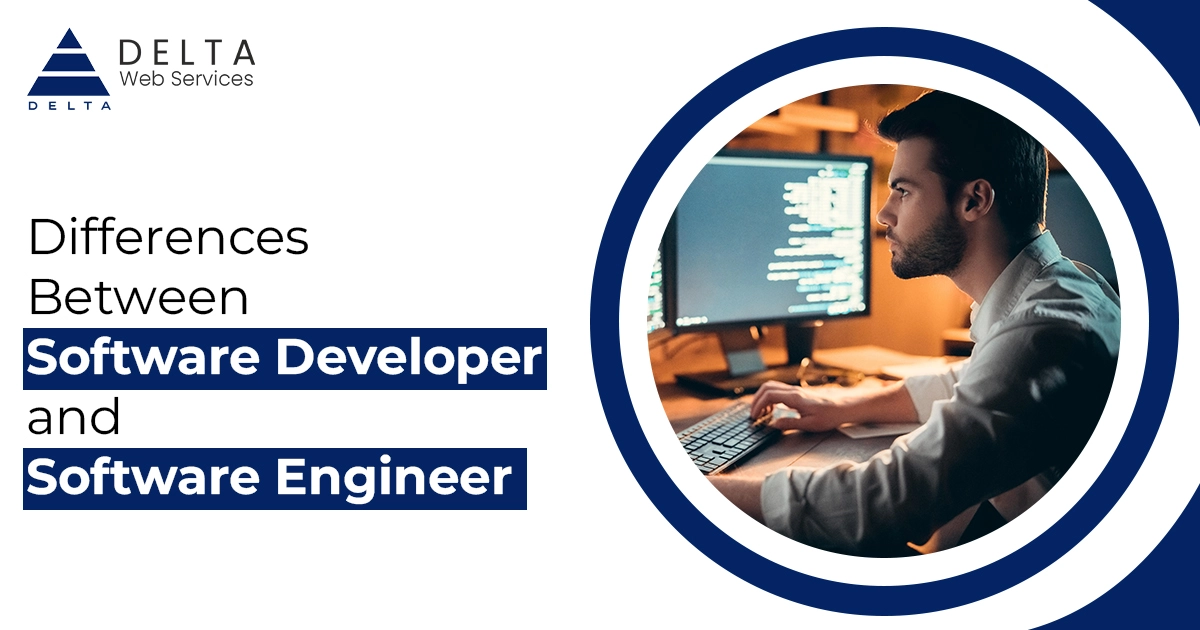Selecting a career (or employing talent) in technology will typically come down to selecting the terms software developer and software engineer. While most companies see the terms as synonymous, the positions hold different responsibilities and mind-sets. This guide dissects the differences, demystifies the fundamental concepts of software development, and assists in determining which route—or hire—is ideal for your requirements.
What Is Software Development?
Software development is the start-to-finish process of converting an idea into a functional digital product. It encompasses all stages of the software development life cycle (SDLC):
Requirement gathering
- Design & prototyping
- Coding
- Testing & quality assurance
- Deployment
- Maintenance & updates
A successful development process harmonizes three pillars: functionality, quality, and time to market. Stakeholders (product owners, designers, QA engineers, DevOps) work together to ensure the software addresses user requirements, stays stable, and adapts as requirements evolve.
What Is a Software Developer?
A software developer concentrates on writing and refining code to produce the features users experience and engage with. Essential characteristics are:
- Hands-on coding skills: Experienced in one or more languages (e.g., JavaScript, Python, Java).
- Feature ownership: Converts specifications into functional components.
- Problem solving: Fixes bugs, refactors, and optimizes code.
- Collaboration: Works closely with UI/UX, QA, and product teams to get user-facing features shipped quickly.
- Consider developers as artisans: they bring blueprints to life, iterating until the product is clean and efficient.
Software Developer vs Software Engineer: Which Is Better?
| Aspect | Software Developer | Software Engineer |
| Primary Focus | Writing, debugging, and enhancing code for specific features | Designing and managing the overall architecture, systems, and processes |
| Scope | Component-level or feature-level | System-level, often spanning multiple services |
| Mind-set | “How can I build this feature quickly and cleanly?” | “How does this feature fit into the larger system, scale, and maintain?” |
| Typical Activities | Implement user stories, fix bugs, optimize UI responsiveness | Define APIs, establish coding standards, ensure scalability & reliability |
| Collaboration | Directly with designers, testers, product owners | Cross-functional; may guide developers, DevOps, QA on best practices |
| Career Path | Front-end / back-end developer → senior developer → tech lead | Software engineer → senior engineer → solutions / systems architect |
| Best For | Rapid feature delivery, startups, product iterations | Complex, distributed systems, enterprise applications |
Which is “better”?
- Choose a developer when you require fast feature development, a proof of concept, or front-end finishing touches.
- Choose an engineer when your project requires scalable architecture, multi-service integration, or rigorous reliability requirements.
For many teams, engineers and developers work together: engineers define the system foundation, and developers write the user-facing layers on top.
When to Hire or Become a Software Developer
- Early-stage startups with a need for rapid iteration
- Projects where UI/UX polish generates value
- Roles emphasizing craftsmanship in code and feature velocity
When to Become or Hire a Software Engineer
- Businesses that need resilient, fault-tolerant systems
- Cloud-native applications with microservices or event-driven architecture
- Teams that care about long-term maintainability, automation, and DevOps culture
Key Takeaways
- Software development is the end-to-end process; developers and engineers are separate contributors in it.
- A software developer is good at coding user-facing features and iterating rapidly.
- A software engineer cares about architectural soundness, scalability, and systemic design.
- Neither function is better in and of itself—your project’s complexity, timeline, and scope dictate what expertise you require.
Regardless of whether you’re building a career roadmap or putting a product team together, recognizing these distinctions means the right people work on the right problems—shipping software that delights users and endures.




